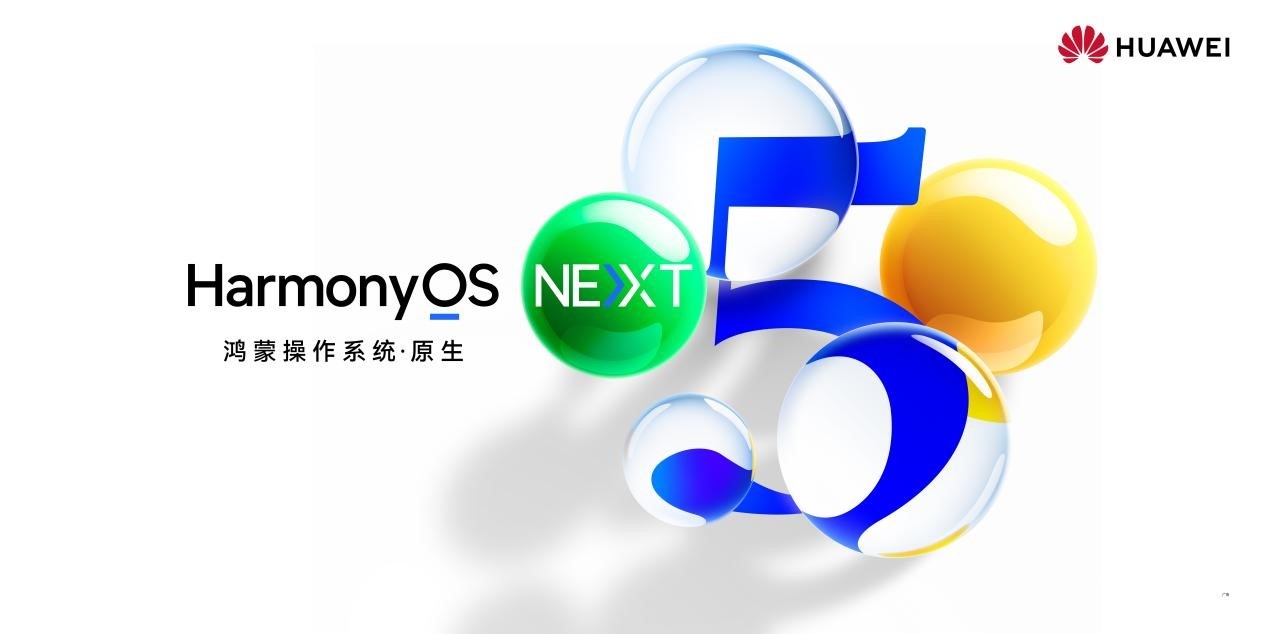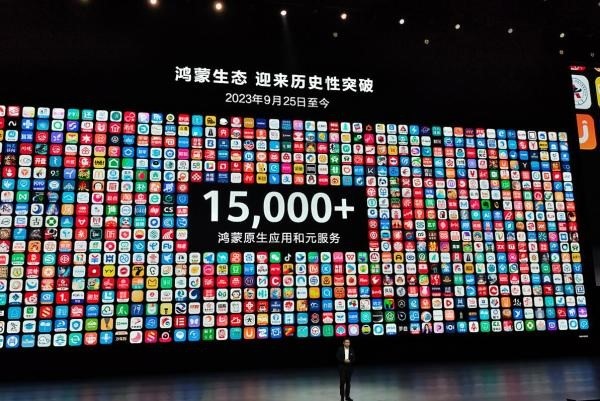On October 22, 2024, Huawei officially released China's first domestic mobile operating system, HarmonyOS NEXTThe release of Huawei's HarmonyOS is not only a showcase of technological achievements, but also an important step forward for China in the global technology competition. Driven by the independent and controllable technology strategy, HarmonyOS has quickly become the top market share in China, becoming the world's third largest operating system after Apple's iOS and Android systems. This achievement provides a solid foundation for China's scientific and technological independence, and strengthens the global voice in the core field of operating systems.
1. A milestone for full-stack self-development
CCTV News said in the report that Huawei's Harmony operating system, as the world's first full-stack self-developed mobile operating system, has realized the independent and controllable domestic operating system. It covers independent research and development in many fields from system kernel to file system, programming language, design framework, AI system and so on. Data shows that by the end of 2023, the HarmonyOS system has covered 300 million devices around the world, becoming a strong competitor to Android and iOS. According to market research firm Counterpoint, HarmonyOS has a 23.1% share of the Chinese market, ranking second in the country, behind Android.
The independent and controllable HarmonyOS system not only enhances the technological competitiveness, but also plays a key role in national information security. For all links in the industrial chain, the autonomy of the operating system is the foundation of information security. The intensifying friction of science and technology on a global scale has made independent research and development capabilities the key to the realization of technological independence for enterprises and countries.

Figure: The native HarmonyOS Next was officially released
In addition, Huawei's breakthrough in full-stack self-development has set an example for other technology companies in China, showing that technological innovation is no longer just dependent on overseas introduction and learning, but can be independently innovated at the source. The achievement of this achievement proves China's R&D strength in the field of core technologies, and further promotes the country's voice in the global scientific and technological competition.
2. New opportunities for ecological co-construction
Building the HarmonyOS ecosystem is one of Huawei's core strategies for future development. According to Huawei's official data, Huawei will invest more than 6 billion yuan in the construction of the HarmonyOS ecosystem in 2023 to encourage developers around the world to join the ecosystem, and has attracted more than 1.5 million developers to participate. This altruistic ecological co-construction concept not only enriches the application scenarios, but also provides a guarantee for the healthy development of the ecosystem.

Figure: HarmonyOS ecosystem ushered in a historic breakthrough
In addition to promoting developer innovation, Huawei also provides more opportunities for partners in a wide range of fields, including smart home, automotive, and healthcare. For example, domestic home appliance giants such as Changhong and Hisense have integrated the Hongmeng system into their smart home appliance products. This ecological co-construction model can not only improve the market penetration rate of Hongmeng, but also drive the technological upgrading and innovative development of related industries.
3. Deep integration of AI and operating systems
A major technical highlight of the HarmonyOS system is the deep integration of AI capabilities into the core of the system, which not only improves the intelligence level of the system, but also brings a new experience to users. According to Huawei, in 2024, HarmonyOS will launch an upgraded version of Xiaoyi's AI assistant, which can provide intelligent services in multiple devices and scenarios. Taking Huawei's smart home as an example, users can use Xiaoyi AI to intelligently manage and personalize home devices, further improving the convenience of life.
This deep integration of AI and operating systems is an important trend in global operating system technology innovation. Based on actual user data, Huawei's AI upgrade has improved the device recognition rate by 30% and reduced battery consumption by 20%, significantly improving the user experience. In the future, HarmonyOS will continue to make efforts in the field of smart terminals and the Internet of Things through enhanced AI functions to further expand its technical advantages.
4. A new experience of multi-device connectivity
Another core advantage of Huawei's HarmonyOS system is the ability to interconnect multiple devices. According to 2023 data, more than 150 million devices around the world have been interconnected based on the HarmonyOS system, involving multiple device types such as smartphones, tablets, watches, and TVs. In particular, common applications such as DingTalk and AutoNavi Map, which are native to HarmonyOS, can be seamlessly connected and operated across devices through the HarmonyOS system, bringing users a more convenient experience.
Specific application scenarios, such as the HarmonyOS version of DingTalk, can seamlessly switch between mobile phones and PCs, and the meetings conducted by users on mobile phones can be directly transferred to the computer to continue, significantly improving work efficiency. Through this ability to work together with multiple devices, the HarmonyOS system not only enhances the user experience, but also provides enterprises with more efficient office solutions, which has been widely recognized by the market.
5. The new landscape of global technology competition
The successful launch of the HarmonyOS marks a significant change in the global technology competitive landscape. In the operating system market, iOS and Android have long stood side by side, and the addition of HarmonyOS has brought new variables to the global operating system market. According to Counterpoint's analysis report, the installed base of HarmonyOS systems worldwide has exceeded 300 million, covering everything from smartphones to smart homes, wearable devices, and even automotive operating systems.
In addition, the success of HarmonyOS has also provided more choices for developers and hardware manufacturers around the world. Many international companies that once relied on Android, such as some emerging market companies in the Middle East and Southeast Asia, have begun to gradually turn to HarmonyOS. This new global pattern will not only help Chinese technology companies win more voice in the international market, but may also promote the relayout of the global technology industry chain.
6. The rise of domestic operating systems
The release of the Hongmeng system is a representative event of the rise of domestic operating systems. For a long time, China's operating system market was monopolized by overseas giants, but the emergence of the HarmonyOS system broke this situation. Taking the market data in 2023 as an example, in China's smartphone market, the installed capacity of the HarmonyOS operating system is close to 15%, and this data is expected to continue to climb in the next few years.
In the context of globalization, Huawei not only focuses on the development of the domestic market, but also actively expands the influence of HarmonyOS in overseas markets. According to Strategy Analytics' forecast, by 2025, the global market share of the HarmonyOS system is expected to exceed 10%, which will become an important milestone for the further rise of domestic operating systems.
7. The combination of technological innovation and social responsibility
In addition to technological breakthroughs, the HarmonyOS also demonstrates Huawei's commitment to social responsibility. For example, HarmonyOS's accessibility function realizes the voice restoration function of people with speech impairment through AI technology, which greatly improves their communication experience. This innovation not only reflects the temperature of technology, but also provides practical help to the disadvantaged groups in society.
Overall, the release of Huawei's HarmonyOS system has not only brought breakthroughs in technology, but also shown far-reaching impact in many aspects such as market, ecology, and social responsibility. With the continuous optimization and expansion of the application of the HarmonyOS system, it will further promote the development of China's and even the world's digital economy in the future, and become an important part of the global technology competition pattern.






